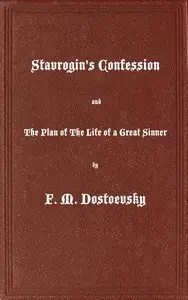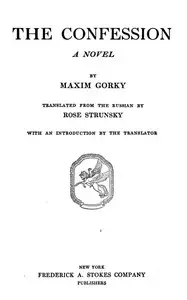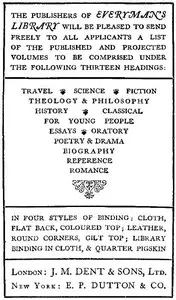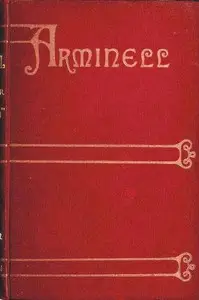"Stavrogin's Confession and The Plan of The Life of a Great Sinner" by Fyodor Dostoyevsky is a story mixing a dark confession with the outline of a bigger, unfinished novel, examining tough questions about right and wrong. The main character, Nikolai Stavrogin, struggles with guilt and a troubled past, especially involving a young girl named Matryosha, causing him to seek answers from Bishop Tikhon in a monastery. As readers learn about Stavrogin's complicated relationships and the different views people have of him, they see a man deeply troubled by his actions. The book is a journey into Stavrogin's mind, exploring his search for forgiveness and the heavy weight of his mistakes in a world filled with moral uncertainties.

Stavrogin's Confession and The Plan of The Life of a Great Sinner With Introductory and Explanatory Notes
By Fyodor Dostoyevsky
Haunted by a dark secret, a morally ambiguous man seeks redemption while a grand plan of sin and salvation remains unfinished.
Summary
About the AuthorFyodor Mikhailovich Dostoevsky, sometimes transliterated as Dostoyevsky, was a Russian novelist, short story writer, essayist and journalist. Numerous literary critics regard him as one of the greatest novelists in all of world literature, as many of his works are considered highly influential masterpieces. Dostoevsky's literary works explore the human condition in the troubled political, social, and spiritual atmospheres of 19th-century Russia, and engage with a variety of philosophical and religious themes. His most acclaimed novels include Crime and Punishment (1866), The Idiot (1869), Demons (1872), The Adolescent (1875), and The Brothers Karamazov (1880). His 1864 novella Notes from Underground is considered to be one of the first works of existentialist literature.
Fyodor Mikhailovich Dostoevsky, sometimes transliterated as Dostoyevsky, was a Russian novelist, short story writer, essayist and journalist. Numerous literary critics regard him as one of the greatest novelists in all of world literature, as many of his works are considered highly influential masterpieces. Dostoevsky's literary works explore the human condition in the troubled political, social, and spiritual atmospheres of 19th-century Russia, and engage with a variety of philosophical and religious themes. His most acclaimed novels include Crime and Punishment (1866), The Idiot (1869), Demons (1872), The Adolescent (1875), and The Brothers Karamazov (1880). His 1864 novella Notes from Underground is considered to be one of the first works of existentialist literature.



















